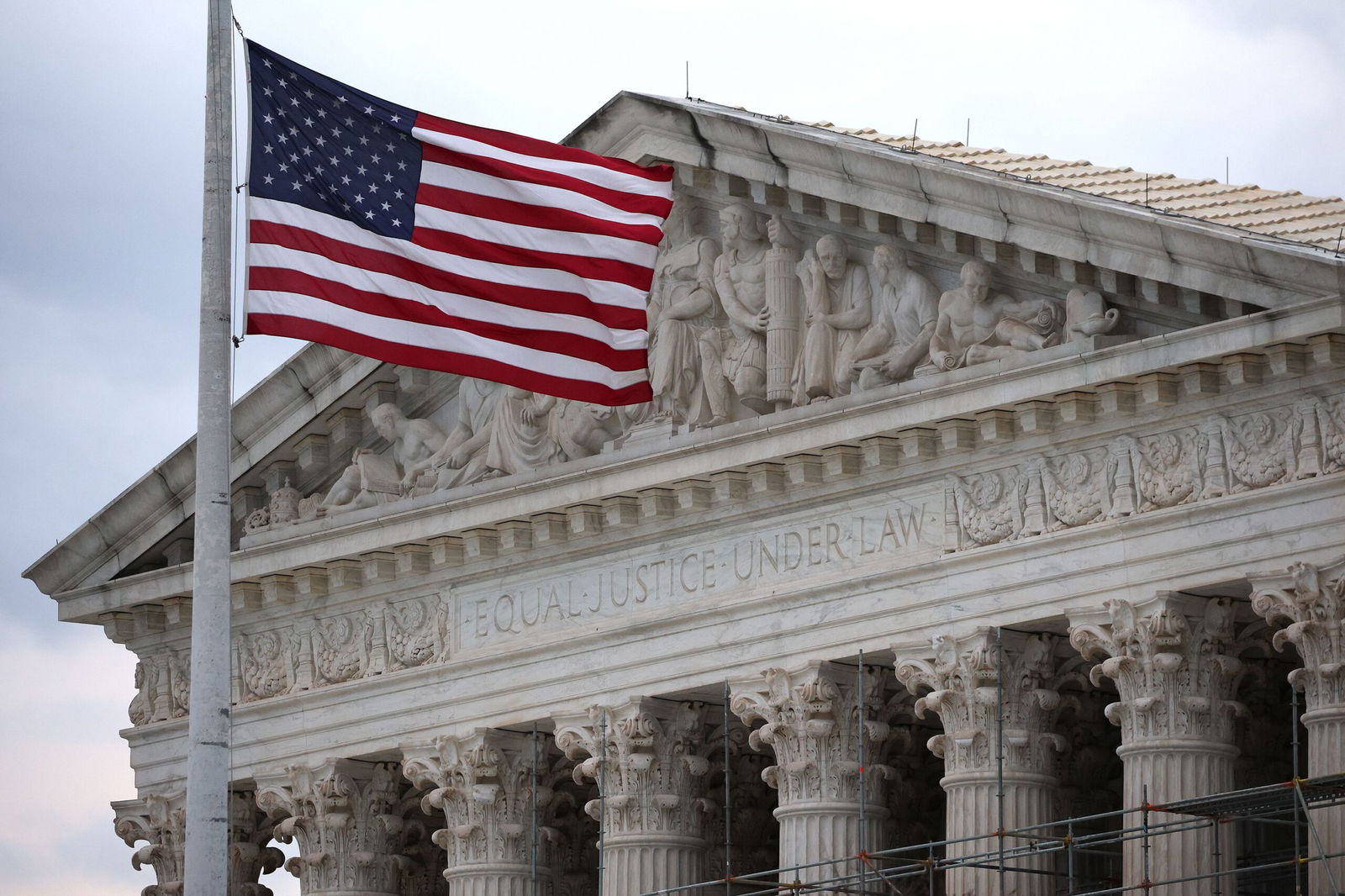Supreme Court says Planned Parenthood can’t challenge South Carolina’s funding cuts

The U.S. Supreme Court is shown March 17
By John Fritze and Devan Cole, CNN
(CNN) — The Supreme Court on Thursday blocked Planned Parenthood from suing South Carolina over the state’s decision to pull the organization’s Medicaid funding because it provides abortions, a decision that could prompt other red states target the organization and make it harder for other Medicaid beneficiaries to choose their doctor.
The decision was yet another loss for Planned Parenthood and its allies at the conservative court, which three years ago wiped away the constitutional right to abortion by overturning Roe v. Wade. Though the legal issue at the center of the case was technically not about abortion, the court’s decision threatens funding for an organization that is a leading provider of reproductive healthcare.
The court’s opinion written by Justice Neil Gorsuch was 6-3, divided along conservative and liberal lines.
Rather than trying square a circle, Gorsuch wrote that “we think the better course is the one our precedents suggest.”
The law, he said, “uses clear and unambiguous rights-creating language, so neither supports a private suit.”
Though the majority opinion was technical, the court’s decision drew a sharp debate between Justice Clarence Thomas, a conservative, and Justice Ketanji Brown Jackson, who wrote the dissent for the liberal wing, over the meaning of a central Reconstruction-era law that allowed people to sue the government in federal court for violations of their civil rights.
Plaintiffs now routinely use that law “alleging constitutional violations that would have been unimaginable in 1871,” Thomas wrote.
But Jackson argued that the majority was weakening “the landmark civil rights protections that Congress enacted during the Reconstruction Era” and said the court’s ruling “is likely to result in tangible harm to real people.”
“At a minimum, it will deprive Medicaid recipients in South Carolina of their only meaningful way of enforcing a right that Congress has expressly granted to them. And, more concretely, it will strip those South Carolinians – and countless other Medicaid recipients around the country – of a deeply personal freedom: the ‘ability to decide who treats us at our most vulnerable,’” Jackson wrote.
Implications of the decision
At issue was an executive order South Carolina Gov. Henry McMaster signed in 2018 that yanked Medicaid funding for the state’s two Planned Parenthood clinics.
The Republican governor argued that those payments amounted to a taxpayer subsidy for abortion. South Carolina already bans abortion by as early as six weeks of pregnancy.
McMaster’s order, while aimed at restricting access to abortion, had the effect of also blocking patients from receiving other services at Planned Parenthood, including contraception, breast exams and testing for sexually transmitted diseases.
The prohibition, Planned Parenthood argued, encroached on a “deeply personal right” to choose one’s doctor.
About one-fifth of South Carolina residents are insured through Medicaid, according to court records. Planned Parenthood operates two facilities in the state, one in Charleston and one in Columbia.
But the decision could have implications beyond the Palmetto State if it encourages other red-state governors to cut funding for Planned Parenthood from their Medicaid programs. Because of that, the case has reverberated through the national abortion debate, even though it was more squarely focused on a procedural question dealing with Medicaid.
A patient named Julie Edwards and Planned Parenthood South Atlantic sued South Carolina, relying on a federal law that gives Medicaid patients the right to access care at any qualified doctor’s office willing to see them. Under that law, a state that takes part in Medicaid must ensure that “any individual” insured through the program “may obtain” care from any qualified and willing provider.
But South Carolina, represented by the conservative religious law group Alliance Defending Freedom, argued that the Medicaid law was “not a civil-rights statute.” The law doesn’t specifically include language giving people a right to sue and the Supreme Court has been reluctant in other cases to find that right absent explicit buy-in from Congress.
While the Supreme Court has moved cautiously on that question in other contexts, a 7-2 majority found such a right in a related case two years ago. That appeal involved a nursing home patient whose wife sued over what she said was inadequate care. In an opinion written by Jackson that was joined by both conservative and liberal colleagues, the court found that the Federal Nursing Home Reform Act gave the plaintiff a right to sue.
Justice Amy Coney Barrett wrote separately in that earlier case – joined by Chief Justice John Roberts – to say that while she agreed with the outcome in that case, the court should “tread carefully” before allowing parties to sue to enforce requirements in other spending laws.
Critics say that without giving program beneficiaries the ability to sue states it would be virtually impossible to enforce requirements Congress includes in its spending laws. The only recourse the federal government would have left to enforce those requirements is to cut its share of Medicaid funding to a state for noncompliance.
But that, critics have said, is completely impractical given the broad reliance on Medicaid.
President Donald Trump’s administration supported South Carolina’s position, a break from the Biden administration.
South Carolina repeatedly lost its effort to defend the governor’s order in lower courts. A unanimous panel of the Richmond, Virginia-based 4th US Circuit Court of Appeals sided with Planned Parenthood last year.
The-CNN-Wire
™ & © 2025 Cable News Network, Inc., a Warner Bros. Discovery Company. All rights reserved.



